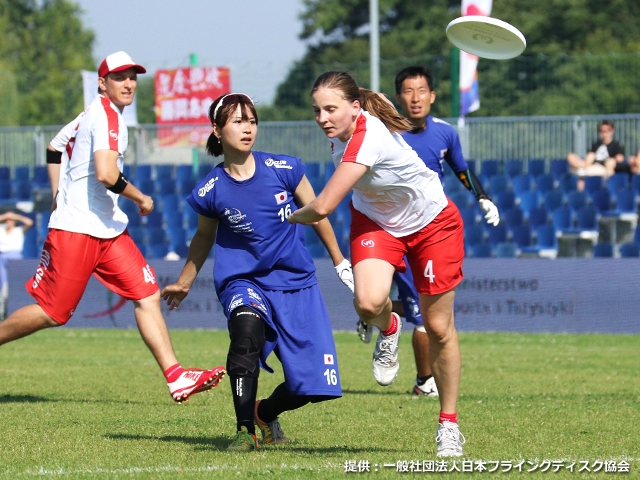NEWS
Respect: For the beautiful game of football - Elimination of Violence in Football Vol.96
03 July 2020

The 2020 season of the J.League has kicked-off and fully-fledged usage of VAR (video assistant referee) has started from this season. The implementation of VAR has been criticised that it distracts the flow of the game and contradicts the basic principle of football, where games are “played by humans and judged by humans.” Furthermore, there are others who believe that it provides sufficient assistance for the four referee team to make better decisions on the pitch, which would ultimately produce a better environment for football. Despite the debate, with FIFA and the world’s top leagues implementing the system, VAR has become an essential part of football at elite level.
Association Football was born in 1863. In efforts to adopt a universally accepted rules for playing football, 11 clubs gathered in London to draft a set of 14 rules and formed The Football Association (The FA). The term soccer comes from an English trend at the time, where words were abbreviated with the suffix "-er," turning “Association Football” to “Assoccer,” which eventually turned into “Soccer.”
In the first set of codified rules of football, referees were not mentioned. Football was considered as a gentlemen’s sport, therefore there will be no fouls committed. In an occurrence of any issues during a game, players of the two opposing sides were supposed to resolve the issue through a discussion.
However, with the evolution of football, the game grew more sophisticated and required teams to select an umpire to represent the team in discussions to resolve issues. When that was not enough, teams requested a neutral expert to make judgments outside the pitch, who later became known as the “referee.” Eventually, umpires evolved into linesmen (assistant referee) and the referee started to manage the game inside the pitch. It is said that the black uniforms worn by the referees come from the black frock coats worn by the referees at the time, and the canes held by the linesmen at the time were replaced by flags.
Recently, I spoke with a member from the Japan Flying Disc Association regarding ultimate (ultimate Frisbee). Ultimate is a sport in which teams consists seven players a side and points are scored by passing the flying disc (Frisbee) to a teammate in the opposing end zone. The sport is named “ultimate” because it requires speed, technique, and endurance at a high level. Perhaps the most distinctive aspect of the sport is the fact that the games are self-officiated, which places the responsibility for fair play on the players. Each player serves the role as a player and as a referee on the pitch, and in case of a disagreement, a conversation ensues between both parties involved to determine the verdict, similar to how football used to resolve issues in the early days.
With the foundation of a professional league in the USA, ultimate has started to incorporate referees in their matches, but the self-officiating aspect of the sport still remains as a focal point and the World Flying Disc Federation is committed to follow through on their core principle. When players voice discontent, the team’s Spirit Captain is there to aid them in resolving their issues and keeping the team together.
We certainly hope that football can be played the same way. There will be complaints when two sides share different opinions. Seeing upset expressions and gestures of dissatisfaction is only natural, however, excessive complaints over a made decision is a sign of bad sportsmanship. Players were praised for their sportsmanship at the Rugby World Cup 2019™ and it was as if the viewers were questioning why football cannot be like that, too?
It is said that a football referee makes some 200-300 decisions per match, including those with crucial influence on the match, such as penalty kicks and sending-offs (Red cards). VAR was implemented to help referees make better decisions. However, even with the help of VAR, it is impossible to make decisions that leaves everyone completely satisfied, and it goes without saying that matches without VAR will continue to have controversies. Regardless of the circumstance, it is important that we understand and follow the Laws of the Game, and abide by the decisions made by the referees (respecting the decision), with or without the aid of VAR.
Regarding the decisions made by the referees, the Laws of the Game states, “Decisions will be made to the best of the referee’s ability according to the Laws of the Game and the ‘spirit of the game’ and will be based on the opinion of the referee who has the discretion to take appropriate action within the framework of the Laws of the Game.” Referees are asked to respect football and give their best efforts to make their decisions. Also, on the “The philosophy and spirit of the Laws,” it states, “Football must have Laws which keep the game ‘fair’ as a crucial foundation of the beauty of the ‘beautiful game’ is its fairness” and that “The integrity of the Laws, and the referees who apply them, must always be protected and respected.”
【Reporter】MATSUZAKI Yasuhiro (former chairperson of JFA Respect/Fair play Committee)
*This article was originally posted on Japan Football Association “Technical News,” March 2020 edition.
Related News
Latest News
-
National Teams
2026/02/19
U-20 Japan Women's National Team short-listed squad & schedule - Training Camp (2/23-26@JFA YUME Field)

-
National Teams
2026/02/19
Japan Beach Soccer National Team short-listed squad & schedule - Training Camp (2/26-3/2@Okinawa)

-
National Teams
2026/02/12
U-17 Japan National Team squad & schedule - Prayer for Peace; Hiroshima International Youth Soccer Games 2025 (2/17-23@Hiroshima)

-
National Teams
2026/02/12
Nadeshiko Japan (Japan Women's National Team) squad & schedule - AFC Women's Asian Cup™ Australia 2026 (2/23-3/22)

-
National Teams
2026/02/09
U-16 Japan Women's National Team short-listed squad & schedule - Training Camp (2/16-19@Okayama)



